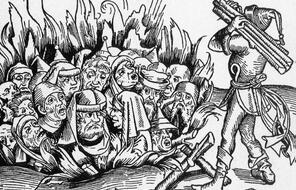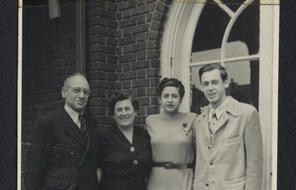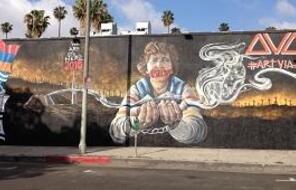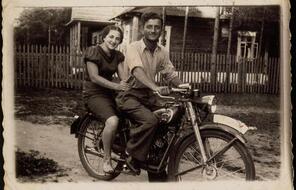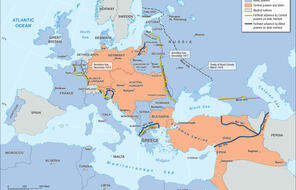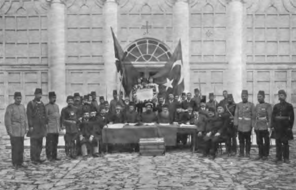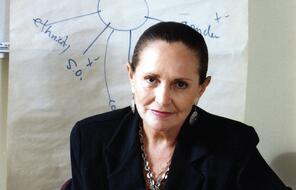Seeking a Strategy that Works
At a Glance
Subject
- Civics & Citizenship
- Social Studies
- Human & Civil Rights
- The Holocaust
Khalida Brohi was born in a rural village in Pakistan. When she was a young girl, her father and her 14-year-old mother decided to leave their rural village and move to a town where their children could attend school. Even as Brohi attended school in larger Pakistani towns and cities, her father kept a house in their rural homeland in order to keep the family connected to their roots. As she grew older, Brohi realized that she had opportunities denied to peers in her rural homeland. Brohi was troubled and began to look for ways to improve the lives of women and girls in Pakistan—a journey that has had many twists and turns. In a talk presented at a 2014 TED conference, she said,
I come from an Indigenous tribe in the mountains of Balochistan called Brahui. Brahui, or Brohi, means mountain dweller, and it is also my language. Thanks to my father's very strict rules about connecting to our customs, I had to live a beautiful life of songs, cultures, traditions, stories, mountains, and a lot of sheep. But then, living in two extremes between the traditions of my culture, of my village, and then modern education in my school wasn't easy. I was aware that I was the only girl who got to have such freedom, and I was guilty of it. While going to school in Karachi and Hyderabad, a lot of my cousins and childhood friends were getting married off, some to older men, some in exchange, some even as second wives. I got to see the beautiful tradition and its magic fade in front of me when I saw that the birth of a girl child was celebrated with sadness, when women were told to have patience as their main virtue.
These realizations pained Brohi, but she was first moved to act when she learned that a friend had been the victim of an “honor killing.” Brohi explains: “Honor killing is a custom where men and women are suspected of having relationships before or outside of the marriage, and they're killed by their family for it. Usually the killer is the brother or father or the uncle in the family.” Those who practice honor killing believe that when a woman has a forbidden relationship with a man, she brings shame to her family, and the family’s honor can be restored only by killing her. The United Nations believes that there are at least 1,000 such “honor” murders in Pakistan every year, but many more probably go unreported.
After her friend’s death, Brohi started trying to raise awareness about the practice of honor killing. When her family got a computer, Brohi found a way to amplify her voice. As one of eight children, she could use the computer for only a few minutes a day, but it opened up a new world for her. She created an online campaign called the WAKE UP Campaign against Honor Killing and connected with supporters in Britain, the United States, and Australia. Members of the news media paid attention to Brohi’s movement, and she organized rallies and strikes to speak out for women’s rights. But she soon learned that people in her community in Balochistan were insulted by her efforts to challenge centuries-old customs. Her father received anonymous letters, the family’s car was stoned, and Brohi received a death threat. She eventually stayed in Karachi for her safety, and she began to think differently about how to protect and empower women in her homeland. In her talk, she went on to explain:
Sughar Women Empowerment Project
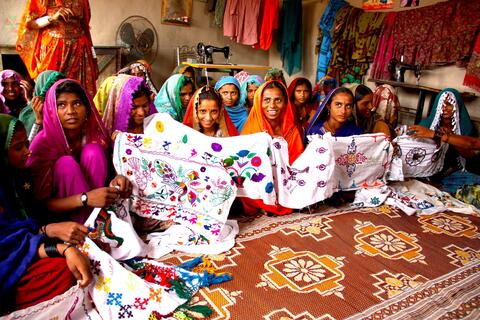
Sughar Women Empowerment Project
Women hold embroidery they created with the Sughar Foundation, an organization that provides Pakistani women with opportunities for socioeconomic empowerment.
Women hold embroidery they created with the Sughar Foundation, an organization that provides Pakistani women with opportunities for socioeconomic empowerment.
Back in Karachi, as an 18-year-old, I thought this was the biggest failure of my entire life. I was devastated. As a teenager, I was blaming myself for everything that happened. And it turns out, when we started reflecting, we did realize that it was actually me and my team's fault.
There were two big reasons why our campaign had failed big time. One of those, the first reason, is we were standing against core values of people. We were saying no to something that was very important to them, challenging their code of honor, and hurting them deeply in the process. And number two, which was very important for me to learn . . . was that we were not including the true heroes who should be fighting for themselves. The women in the villages had no idea we were fighting for them in the streets. Every time I would go back, I would find my cousins and friends with scarves on their faces, and I would ask, "What happened?" And they'd be like, "Our husbands beat us." But we are working in the streets for you! We are changing the policies. How is that not impacting their life?
. . . The policies of a country do not necessarily always affect the tribal and rural communities. It was devastating—like, oh, we can't actually do something about this? And we found out there's a huge gap when it comes to official policies and the real truth on the ground.
So this time, we were like, we are going to do something different. We are going to use strategy, and we are going to go back and apologize. Yes, apologize. We went back to the communities and we said we are very ashamed of what we did. We are here to apologize, and in fact, we are here to make it up to you. How do we do that? We are going to promote three of your main cultures. We know that it's music, language, and embroidery.
Nobody believed us. Nobody wanted to work with us. It took a lot of convincing and discussions with these communities until they agreed that we are going to promote their language by making a booklet of their stories, fables and old tales in the tribe, and we would promote their music by making a CD of the songs from the tribe, and some drumbeating. And the third, which was my favorite, was we would promote their embroidery by making a center in the village where women would come every day to make embroidery . . .
So this was the model which actually came out—very amazing. Through embroidery we were promoting their traditions. We went into the village. We would mobilize the community. We would make a center inside where 30 women will come for six months to learn about value addition of traditional embroidery, enterprise development, life skills and basic education, and about their rights and how to say no to those customs and how to stand as leaders for themselves and the society. After six months, we would connect these women to loans and to markets where they can become local entrepreneurs in their communities.
We soon called this project Sughar. Sughar is a local word used in many, many languages in Pakistan. It means skilled and confident women. I truly believe, to create women leaders, there's only one thing you have to do: Just let them know that they have what it takes to be a leader. These women you see here, they have strong skills and potential to be leaders. All we had to do was remove the barriers that surrounded them, and that's what we decided to do.
But then while we were thinking everything was going well, once again everything was fantastic, we found our next setback: A lot of men started seeing the visible changes in their wife. She's speaking more, she's making decisions—oh my gosh, she's handling everything in the house. They stopped them from coming to the centers, and this time, we were like, okay, time for strategy two. We went to the fashion industry in Pakistan and decided to do research about what happens there. Turns out the fashion industry in Pakistan is very strong and growing day by day, but there is less contribution from the tribal areas and to the tribal areas, especially women.
So we decided to launch our first ever tribal women's very own fashion brand, which is now called Nomads. And so women started earning more, they started contributing more financially to the house, and men had to think again before saying no to them when they were coming to the centers. 1
In 2013, Sughar began to build cement halls in Pakistani villages, with the help of the travel website TripAdvisor. They invite other nonprofit organizations to share the spaces for training and education.
Connection Questions
- Why does Khalida Brohi say that the failure of her initial online campaign was her fault? What did she learn from that experience?
- Why might it have been important for Brohi to apologize to the rural communities she was trying to help?
- How was Brohi’s Sughar project different from her WAKE UP Campaign? What setbacks did she encounter with the Sughar project, and how did she overcome them? How was she able to change the status of women in their families?
- Violence against women, even killing at the hands of a male family member, is not limited to Pakistan; in fact, it happens all over the world. In her essay “The Longest War,” Rebecca Solnit writes about violence against women, and she acknowledges that while there are differences in how it happens, all violence against women is “trying to silence and punish women for claiming voice, power, and the right to participate.” 2 How is violence used as a tool to limit someone’s ability to participate?
- How might you learn more about violence against women in your own community? How might you choose to challenge this violence?
- 1Khalida Brohi, "How I work to protect women from honor killings," speech presented at TEDGlobal 2014, October 2014, TED website, last modified 2014, accessed August 25, 2015.
- 2Rebecca Solnit, Men Explain Things to Me (New York: Haymarket Books, 2014), 32.
How to Cite This Reading
Facing History & Ourselves, "Seeking a Strategy that Works," last updated August 2, 2016.

